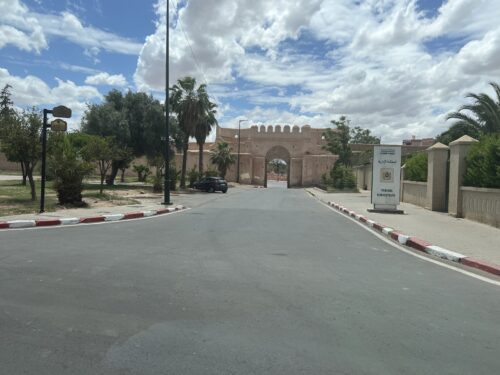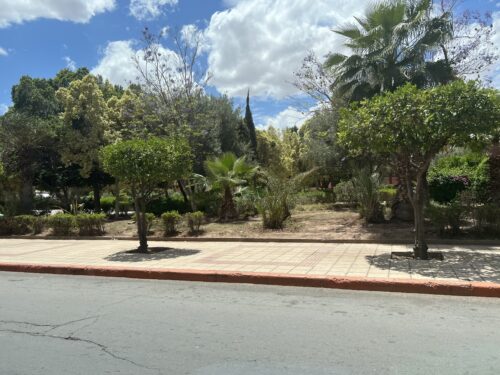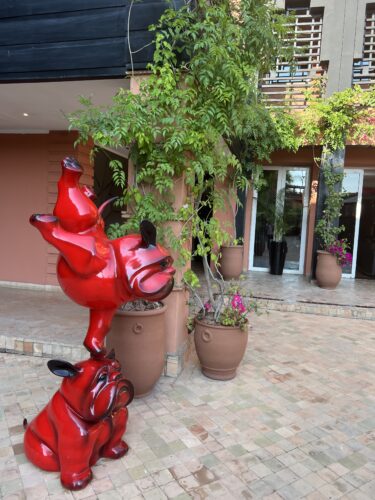May 11th
At dinner the night before we discussed what had been said in the car and inevitably the conversation turned to the King and women’s rights. One of the group said she had been told that the only reason the King supported women’s rights was that he had a 15 year old daughter and was concerned that she would be forced into a marriage with someone he didn’t approve of. She said that Morocco had an appalling record when it came to forced marriage, domestic violence and women’s rights in that it allows child marriages and polygamy, stigmatises and discriminates against children born out of wedlock, blocks marriages of women with men of different religions and disadvantages widowed, divorced or single mothers and their children, who therefore often find themselves in particularly precarious economic situations.
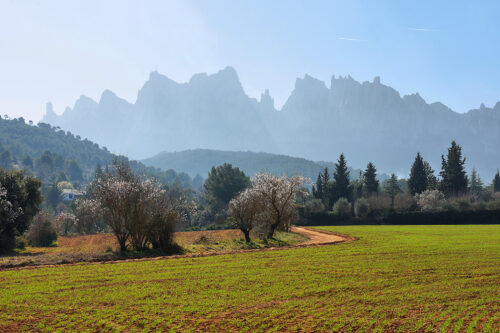
We asked Yassine about this and told him what was said about the King. He was vaguely amused at the comment and said there was no way the Kings daughter would be forced to marry – particularly to someone the King did not approve. The King had been very involved in progressing equal rights for some years.
He agreed that in its current form, the family law does not meet the requirements of a progressive country, but it is undergoing revision and there is a will for change. He also pointed out that there is a difference between Western idealism and Arab realism – that many who criticise his country don’t understand. A very high percentage of women (particularly in rural areas) are financially totally dependent on their families until they marry. Poorer families tend to marry daughters earlier to ease the financial burden and it was important financially for women that the family based culture remained. Change would only come with financial independence and that was reliant on a growing economy for Morocco and higher employment.
There is also a difference between forced marriages and arranged marriages. In his view arranged marriages were much more successful as the parents knew their daughters best and would choose a man who would respect them and could provide for them and their children for the future. Marrying for ‘love’ did not take this into account and, in his opinion, more often ended in divorce with all the economic ramifications. He has two daughters and it is obvious he would prefer a marriage with the family involved in the choice of husband.
His third point was that in a regional comparison, Morocco is one of the countries with the most progressive legal systems for women. They enjoy equal access to all functions in political and economic life, at least in legal terms. A quarter of the parliament is female and a high percentage of University students are female. Women of legal age have no guardian, enjoy freedom to travel, freedom to choose their profession and can run for all political offices. These supposedly trivial rights cannot be taken for granted in the Arabic-speaking world.
His last point was that whilst women in Western Democracies had more freedom, the West also had big problems with a high percentage of marriages ending in divorce, domestic violence and homelessness. People in glass houses shouldn’t throw stones?
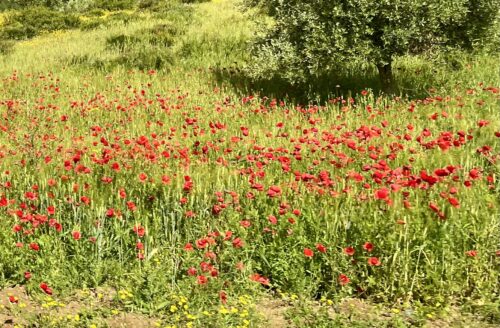
We pulled over for a break after our discussion and moved on to other topics but I was interested in his views and did a bit more research.

Morocco is in the process of reforming its family law and the impetus for reform has not come from organised civil society nor – in the form of protests – from the streets, but from King Mohamed VI himself. In his capacity as political and spiritual head of state, he had called for the principle of equality to finally be realised and the Moudawana (the legislation that regulates the basic civil rights of women) has been revised and submitted to Parliment.
Nothing has happened as a result because the parties in the ruling coalition were too divided. So the monarch has repeated his demand and set the prime minister a deadline. A commission made up of representatives from various ministries and religious bodies had to submit a reform proposal for the Moudawana. This will be assessed by the king and returned to the prime minister. However, the public will only find out about this proposal when the prime minister submits it, presumably in a modified form, to parliament for approval and it is not yet clear when this will happen.
Whist the legal system for women are less discriminatory, in civil and criminal law, numerous discriminations and disadvantages against women persist, which are deeply rooted not only in the legal system but also in society. This can be exemplified by two of the currently most discussed passages of the family law – those on child marriages and inheritance rules.
The hottest topic in the reform debate is inheritance law. In Islam, women receive half of what the men entitled to inherit receive. So if a son and daughter inherit from their parents, the son receives 2/3 and the daughter 1/3 of the estate. If there are only female heirs, widows or daughters have to share the inheritance with distant male relatives of the deceased husband or father thus condemning them to economic dependence. Some women’s rights organisations have long denounced this as unfair and outdated. In contrast to other rules of Moroccan family law, however, the relevant provisions can be found verbatim in the Koran. Even progressive human rights organisations therefore often shy away from demanding equal rights for women in inheritance law.
In 2022, 44% of respondents in a representative survey stated that they were categorically against any changes to inheritance law. Only 36% said they could envisage changes. 20% abstained. In other words, when in doubt, the commitment to Islamic identity beats the desire for more equality.
On the one side of the discourse are conservative and religious forces that see the country’s Islamic identity at risk and warn that the country cannot allow what God has forbidden – presumably a reference to the Koran. On the other side, progressive and liberal organisations demand that the current law should no longer lag behind social realities.
Whatever the outcome, the reform process and the accompanying social debate in Morocco is remarkable in that region and attests to the country’s sincere desire to continue its extraordinarily successful development of recent years, not only economically but also socially.

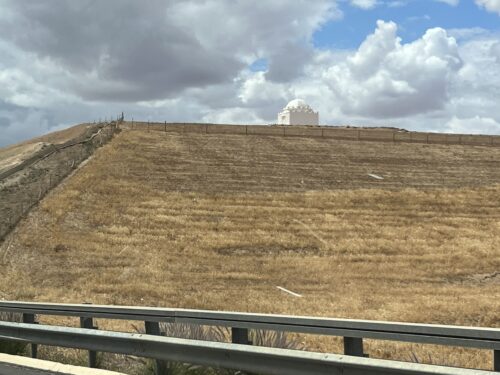
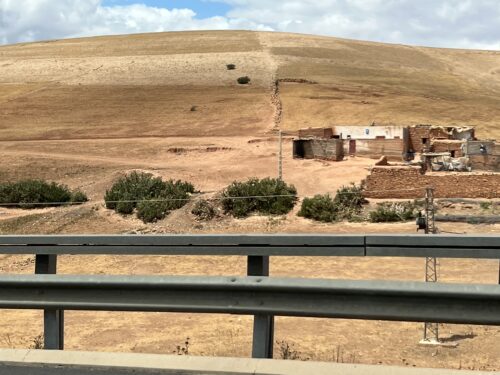
Whilst we were driving and talking, the countryside was gradually changing from green to brown. Marrakesh is known as the gateway to the desert and this was becoming very obvious. It didn’t look as if it would produce anything and yet the inhabitants appeared very resourceful. Long low sheds in the middle of nowhere with a silo beside them housed chickens and herds of goats were plentiful. There was even a van, in the middle of a long stretch of uninhabited road that produced, according to Yassine, the best coffee in Morocco!
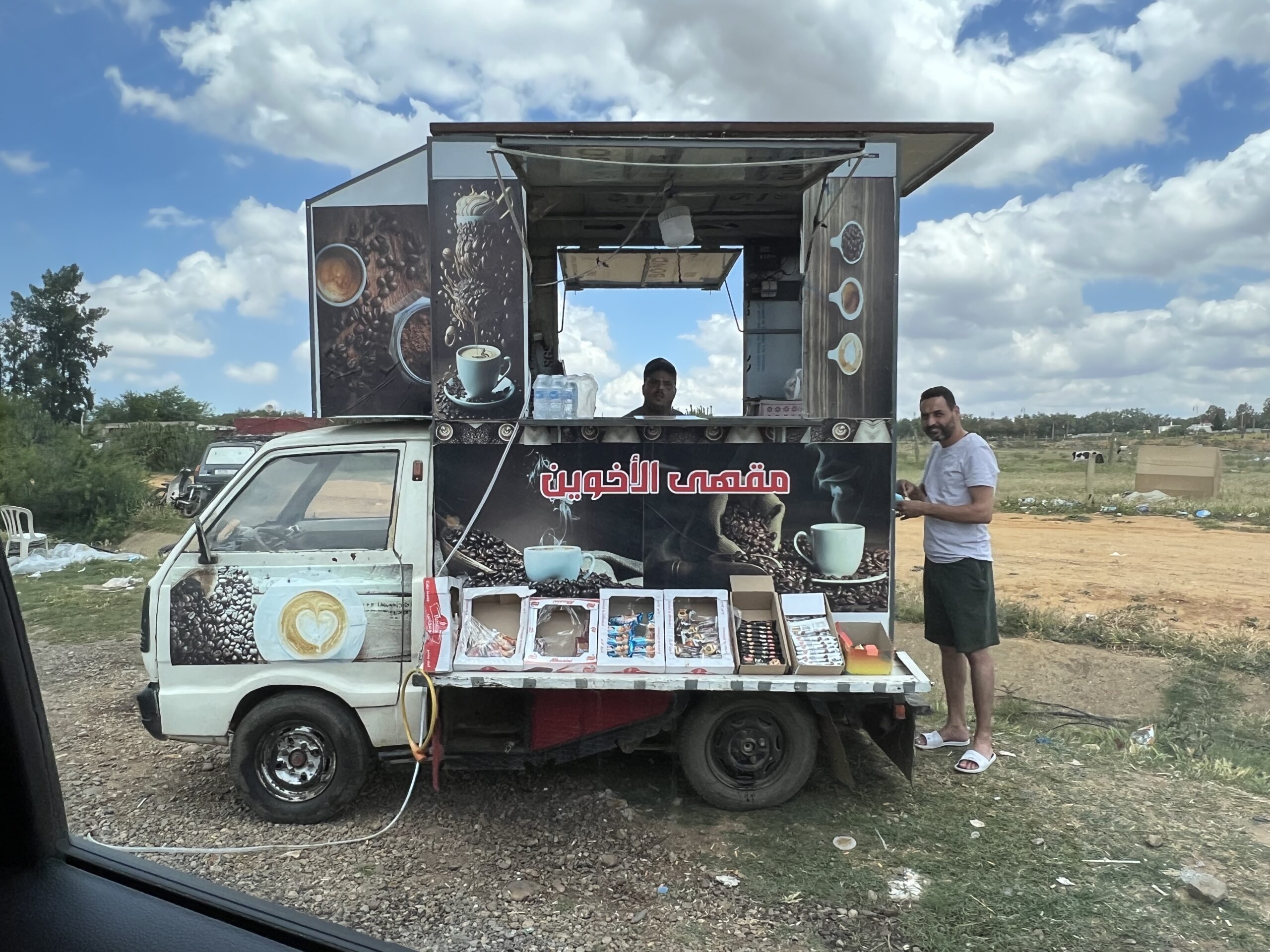
The brown suddenly transformed to green again and we had arrived in Marrakesh and ahead were the entrance gates to the city. It was time to farewell Yassine, check in to the hotel and join the group. It had been an enjoyable and educational couple of days
